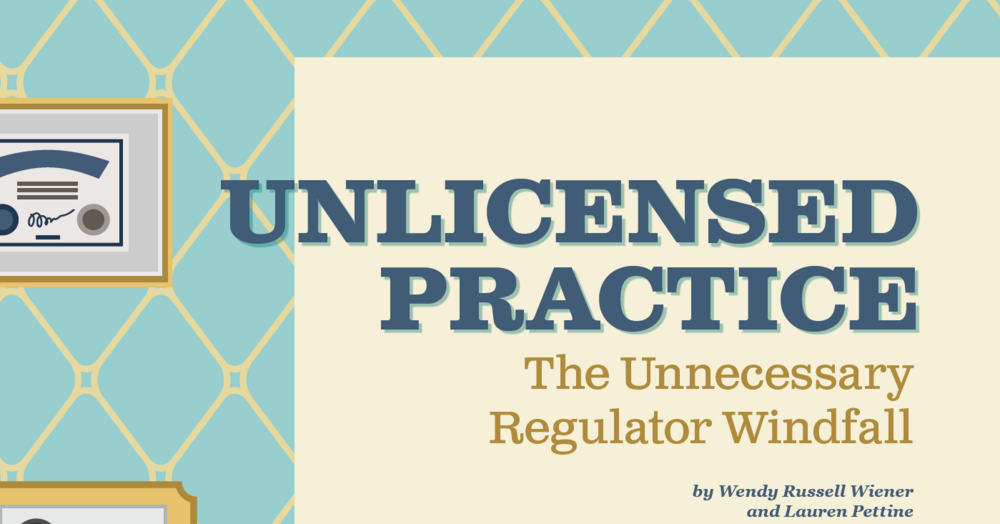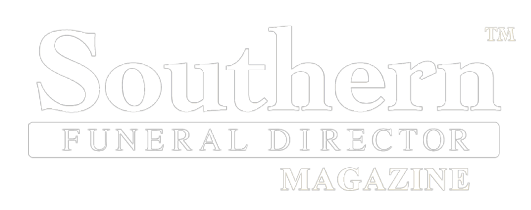(404) 312-6640
UNLICENSED PRACTICE The Unnecessary Regulator Windfall
Licensure: there’s no more important component of regulatory compliance. Nearly every deathcare-related activity requires a license, and deathcare professionals endeavor to obtain the licenses they need. Then why do states generate hundreds of thousands of dollars yearly in fines related to “unlicensed practice”? In this article, we’ll unpack the issues related to unlicensed practice and leave you with steps to follow to ensure you don’t fall into the regulatory trap.
Is the issue real? YES! In fact, over the course of the last twelve months, our good clients, clients who have access to regulatory counsel and guidance, have paid cumulatively more than $100,000 in administrative fines related to unlicensed practice. Here’s a circular statement: Just because your facility is licensed does not mean you cannot engage in unlicensed practice.
But why is unlicensed practice literally the new hot button issue for regulators? Many state funeral boards are funded, in large part, by the fines they generate. It could be that some state regulators enjoy sending violators to jail. It could be that the threat of fines and jail time has a deterrent effect on other licensees, and that helps the regulator do its job of policing. We believe a major driver is that deathcare regulators are embarrassed that their failure to keep up with licensing of those offering funerals and cremations has resulted in some very scary stuff. Let’s take a look at some examples of unlicensed practice.
In California, 155 human remains were found in a warehouse of a crematory. Oceanview Cremations’ license was suspended in 2018. A high-profile personal injury firm signed up several families, bringing the case to prominence.
In Colorado, there’s the still ongoing case of Return to Nature. More than 200 human remains were found in and around an unregistered funeral home.
In Florida, Marion Graham Mortuaries delivered fake cremated remains and abandoned at least 3 human remains inside the Jacksonville funeral home. The funeral home, though not licensed to sell preneed, defrauded many consumers through illegal practices related to preneed contracts.
In Indiana, completely unsanitary conditions existed at a funeral home operating on a suspended license.
In Kentucky, a funeral home performed 290 illegal cremations in an unlicensed facility. The Kentucky Attorney General has fined the funeral home $580,000. A former Louisville mayoral candidate was tied to the funeral home.
So, how do you avoid becoming a victim of your state’s regulator for unlicensed practice? It’s as simple as knowing your law, knowing your rules, and complying with those laws and rules. Sounds easy, right? These are the easy ways to keep out of regulatory trouble.
KNOW YOUR LAW
Licensees are charged with knowing their state’s deathcare laws. Each state’s law describes the activities that each type of licensee can lawfully undertake. For instance, in some states, a licensed funeral director must actively oversee a viewing, while in other states, a funeral director needs only to be available by telephone while the viewing occurs. If you don’t know the law, you could staff a viewing with the wrong personnel.
Action Item: Read, and reread, your state’s laws and rules. Revisit components of the law as to the scope of licensure during regular staff meetings. Require your licensees and managers to review the law regularly.
RENEW ALL LICENSES
One of the easiest ways to engage in unlicensed activity is to fail to ensure all of your operations and individual licenses are properly renewed. So simple to do, yet so often overlooked. And, it’s the kind of thing that turns up, not necessarily because something went wrong, but rather, it happens because the inspector is at the funeral home for the annual inspection.
Action Item: Make and maintain a schedule related to the renewal of all licenses. It sounds rudimentary, but even the most sophisticated operators sometimes fail at this and end up paying significant fines to their states.
BE AWARE OF EMPLOYEE’S “ORIGINS”
Unlicensed practice often occurs because the business is relying on an individual licensee trained in another state. There is enough difference among the states as to which licensees must perform which tasks. For example, if you hire a wonderful staff person trained in California, but you are in Florida, that staff person may go too far in interacting with a family as to arrangements – engaging in activity legal in California, but illegal in Florida.
Action Item: With the transient nature of employees these days, you must make sure to educate all of your staff members, licensed and unlicensed, as to which licenses are needed for each stop of the decedent care journey.
Let’s wrap up by highlighting just a few of the consequences for engaging in unlicensed practice. Most states’ laws contain the capacity to impose an administrative fine on a per-occurrence basis. That means that if your preneed sales agent failed to renew his license but then sold 49 preneed contracts before you realized it and renewed his license, you could be subject to an administrative fine for every single one of those 49 preneed contracts. If your state permits a fine of $10,000 for unlicensed practice (and YES, that is the fine max in several states), then those 49 preneed contracts could cost you nearly half a million dollars!
That said, fines are sometimes the least of the worries. Many states have criminalized unlicensed deathcare practices. In California, unlicensed practice is a misdemeanor punishable by up to six months in jail. If you don’t think that states actually refer unlicensed practice to the county prosecutor, you are wrong. That is the practice in so many states. In Ohio, Swante Hardin, charged with 31 counts of unlicensed activity, was sentenced to more than 11 years in prison. The prosecution in the case asked for a 45-year sentence. While the Hardin case is surely an extreme case of a minister posing as a funeral director for many years – it is cases such as that which often cause the state regulators to “overcorrect”, seeing unlicensed activity even where there is none.
Florida’s recently revised law took unlicensed practice from a misdemeanor to a third-degree felony. The effort is to give force and effect to the state to ensure that it is not embarrassed by cases like that of Shawnte Hardin or Marion Graham.
Ultimately, unlicensed practice is easily avoidable. Know what licenses are needed for the care you are providing, know when they expire, and supervise all staff to ensure compliance! Don’t let your firm become a victim of the regulator for overlooking a deadline or being ignorant of the law.






Comments